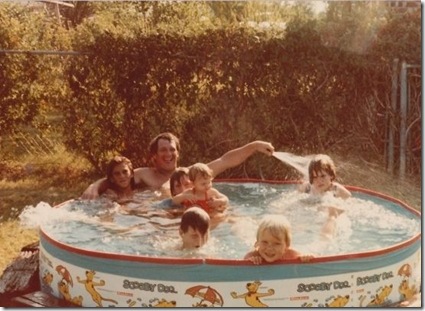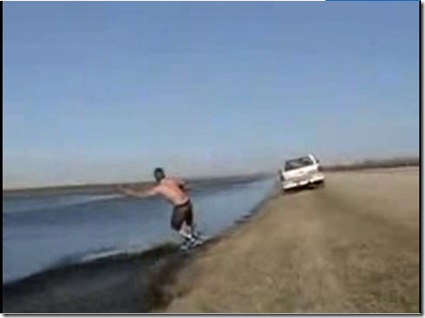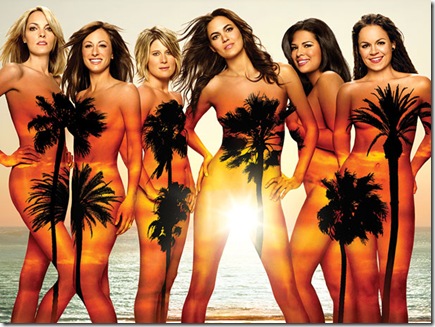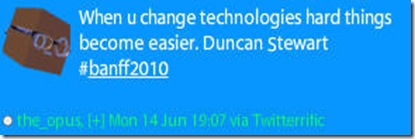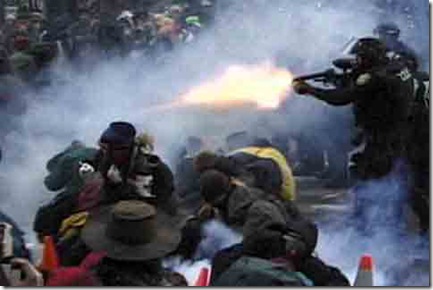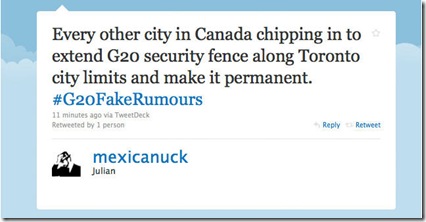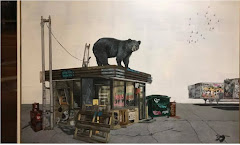
It ain't over 'til it's over. But it's officially over.
57 days after the finals began, Chicago triumphed in overtime to win their first Stanley Cup since 1961.
And with them all the way, following an "All or nothing" strategy, Barry Kiefl takes the crown in the 4th Annual Infamous Writers Hockey Pool.
Second place goes to Mike Foster, with Will Pascoe making the podium for the 3rd straight year, this time to claim the bronze.
The final standings are as follows…

We all know how it works from here. I'll pass on the necessary details in the coming days and then the rest of us Poolies will all ship Barry a token of our appreciation for his prognostication skills. Mike and Will, 2nd and 3rd place prizes will be on their way to you as well from Writers Pool World Headquarters.
Over in the Props division, where I was up most of the night calculating points on the raft of entries, we have our first tie in that category. David Kinahan and William Finlay, Pool HQ will be sending you some tokens as well.
In closing…
A week ago, Barry sent me a letter explaining the reason he picked so many Blackhawks for the Pool and the Cup run. It's a fine expression of what it's like to be a lifelong fan of one team. I can think of no better way of wrapping up this season's pool than printing it here.
Thanks again for playing, everybody. And come back next year. It'll be year Five. Maybe we'll even start using Roman numerals!
The Significance of Stanley - by - Barry Kiefl
1961, the year the Chicago Blackhawks last won the Stanley Cup. I was 10 years old and my dad got me interested in the young Hawks the year before when Chicago lost to the Montreal Canadiens in the semi-finals. The Hawks were the decided underdog but almost ended Montreal’s string of five Stanley Cups in 1960 and then did so the next year. Fifty years of cheering and bittersweet disappointment later I am still waiting for the Hawks to win the Cup again.
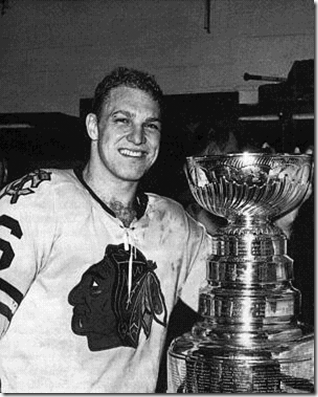
My dad died in 1987 and, though sick that year, insisted on to traveling to Toronto to see the Hawks play. Our shared interest in the Hawks was a part of pretty much our every conversation. The tradition continues with my two daughters who live in Vancouver and cheer unabated for the Hawks, despite their spouses who think it’s a bit odd when there is a local Vancouver team to cheer for (which has never won a Stanley Cup.)
I wonder whether the young men who play for Chicago understand the important role they play in families and among friends who follow the team. The players become like sons and brothers to their fans and should bear this in mind on and off the ice; in 2010 there is no privacy, especially for sports celebrities.

Over the ensuing decades the Hawks have had some excellent teams but always failed to finish off key opponents in the playoffs. The most excruciating loss was in the 1971 Cup to the, by that time, reviled Canadiens in a seven game final series, which the Hawks led 3 games to 2 only to lose the final two games, including the seventh game on home ice.
I listened on the radio and after the seventh game couldn’t concentrate on anything for weeks except the painful loss and even now see visions of the open net opportunities missed by the Hawks in that final game. I was working in a remote northern town that had no live TV, only broadcasts of week old TV shows, so I watched the seventh game a week later knowing the dreadful outcome.
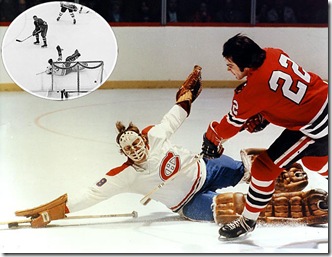
Today the anticipation of a Stanley Cup victory among Hawk fans is palpable. I could feel it when I saw the Hawks play at the United Center last season when they shut out the Ottawa Senators 3-0 in early December. This season an even better Hawk team is the talk of the NHL. Some nights the press crams the pre-game dressing room seeking interviews and I worry that it might ultimately throw this young team off its game, as was the case here in Ottawa in January when the Hawks lost to the Senators 4-1, their only visit to Ottawa for two years.
The local media made it out that the Hawks were pretty much invincible in every position (but goalie). The Hawk goalie played well, as has been the case all season, and was not the reason for the loss. Any given night in hockey a goalie can have an off night; it is called a ‘game’ because luck is involved; but great teams know how to pull together and not let one unlucky game or fluke goal undermine their destiny.
That night a couple of thousand Ottawa area Hawk fans wore the famous Indian Head jersey but that failed to inspire the team. Hawk fans around North America form a loosely-knit group, who share the yearning for the next Stanley Cup, and can strike up a conversation about past and present Hawks at a moment’s notice. The Hawks’ legacy binds together people of all ages and backgrounds. Interestingly, when I saw the Senators play in Chicago last season, I didn’t see a single fan wearing a Senator jersey.

The current Hawk team is reminiscent of the 1960 and ‘61 teams. The ’61 champs had the small, savvy center Stan Makita who was always somewhat detached from the fray and today Patrick Kane plays a similar role. Jonathon Toews reminds me of the lanky Eric Nesterenko, who was once featured in a Canadian TV documentary about the simple joy of skating.
Toews is more intense and a natural leader. Pierre Pilote in 1961 played just like the cool-headed Brent Seabrook on defense and the hulking Dustin Byfuglien is today’s version of Elmer Vasko, a friendly giant on the last championship team. Cristobal Huet’s fragile persona is quite like Glenn Hall’s, who, like Huet, toiled for years as a goalie before winning a championship.
The Hawks back-up rookie goalie might replicate the performance of the Montreal rookie goal tender, Ken Dryden, who beat the Hawks and the forlorn Tony Esposito, who had 15 exceptional years as the Hawk goalie, in that fateful 1971 series. Oddly enough, Esposito’s greatest accomplishment was to share the goaltending duties with Dryden and win the famous 1972 Canada-Russia series, a series some say re-defined hockey and a country. The most noticeable trait about both Dryden and Esposito was their unflappable nature, a feature of every great goalie.

There was one exception on the 1961 team, Bobby Hull. No one today reminds me of Bobby Hull, whose powerful skating and goal scoring abilities are still unparalleled. Bobby was named the MVP of the ’61 series but in a post-game interview credited little-known Reggie Fleming for his role in the final game.
From 1957 to 1972 Bobby Hull brought fans to their feet every night at the old Chicago stadium. He was the first player ever to score more than 50 goals in a season and he did it five times in the old six-team NHL, a league in many ways more competitive than today’s 30-team league. Through the 1960’s Bobby dominated the game.

I followed his career and the rest of the Hawks listening to Lloyd Pettit’s play by play of Hawk games on WGN and then WMAQ radio. Amazingly, both these AM stations hundreds of miles away could be picked up in Ottawa, especially on cold, clear winter nights. Pettit had the same enthusiasm and excitement for the game as Pat Foley does today calling Hawk games on WGN TV and radio.
Whenever the Hawks scored, Pettit made the achievement more exciting than the reality but some nights the radio would fade in and out and it was hard to distinguish between the static on the radio and the stadium crowd cheering for a Hawk goal. On nights when the signal was very weak I would go for a drive, since car radios are less prone to static.
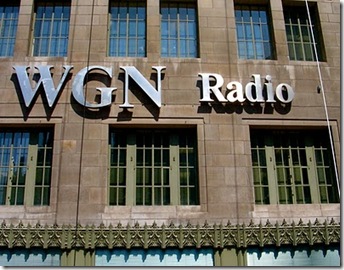
Reggie Fleming, better known for his toughness than scoring, scored what some consider the most important Hawk goal in the past 75 years in game six of the ’61 Cup final against Detroit. Trailing 1-0, Fleming scored a short handed goal to tie the game, and the Hawks went on to win the game and the Cup.
Fleming’s legacy to the game will be more than as just a player; after his death in 2009 he allowed doctors at Boston University to test his brain for chronic traumatic encephalopathy, a disease normally associated with boxing and football. His brain showed signs of the disease and his selfless act will play a role in banning hits to the head in the NHL.
If the Hawks win the Stanley Cup this year it will be because all their star players excel but also because the lesser players, like Fleming, extend themselves and give every ounce of talent, perhaps eclipsing the Hawk stars for the brief time when it really matters. A player like Chico Maki or Ab McDonald, who scored the winner in that final game in ’61, is just as likely as Kane or Toews to play a pivotal role in this year’s Stanley Cup.
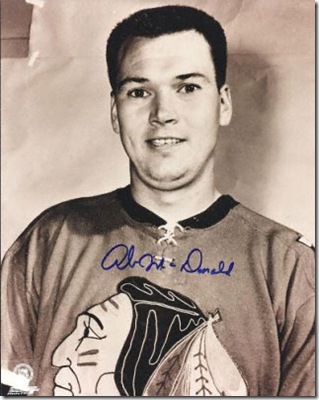
Three years after my dad died I finally had a chance to do something we always talked about, see the Hawks play at the old Chicago Stadium. It was a playoff game against the Edmonton Oilers in 1990 and, while the Hawks, lead by dazzling Denis Savard, lost the game 4-2 and the series, it was an experience I will always cherish.
I arranged a trip to Chicago at the last moment and I will especially remember the young kid who sold me a ticket for $100 outside the stadium. The ticket was kind of crumpled and dirty (I kept it as a souvenir) but they let me in the stadium, where I sat in the second last row, directly behind a post.
No matter, I spent most of the night walking about to see the ice surface from every angle and soak up the atmosphere. I was so enthralled just to be in the stadium and to see the Hawks in a home game, the scalping I took on the ticket and the final score were unimportant.

The 2010 Blackhawks appear to have all the ingredients to win this year’s Stanley Cup. During last year’s playoffs they came from behind in games numerous times, not letting the bounce of the puck alone determine the outcome of a game. In a game early this season, they matched an NHL record by coming back from a 5-0 deficit, to win 6-5.
The ability to overcome adversity and to work together when behind are the earmarks of teams that achieve championships. It was what set the ’61 team apart, plus the fact that they found a natural groove. The famous Canadian play-by-play announcer, Foster Hewitt, can be heard in a scratchy old video of the final game of the ’61 Stanley Cup saying, “The Blackhawks appear to be playing a relaxed style of play.”
The ’61 Hawks had talent, counted on each other and played for the joy of the game and winning came naturally. This year’s talented Hawks also stay calm in difficult situations and seem to play as much for fun as money or fame and this bodes well for this spring’s Stanley Cup.
Win or lose this spring, there will be countless families, friends and complete strangers sharing Hawk stories, cheering on the team and enjoying the games as much as the Hawk players and management. Being the perennial underdogs, if they win the Stanley Cup, there will be a new coterie of fans because everyone loves a team that has struggled and fought so long for success. A Stanley Cup victory will just make me think of my dad smiling.


